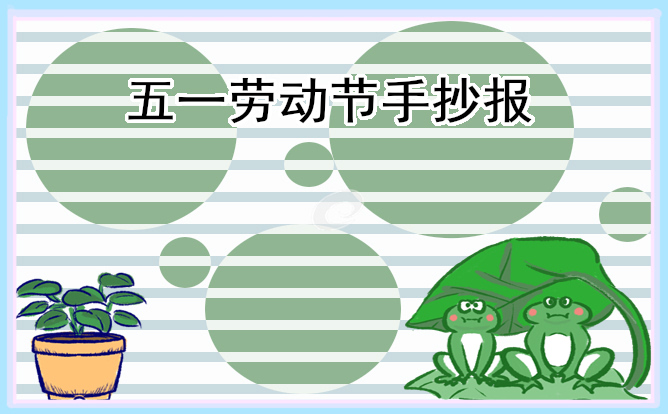冀教版英语八年级上册电子课本(高清版)
“冀教版”是河北省教育厅编写的,“人教版”是国家编写的,主要内容差不多,差别在于编排顺序不一致。下面小编为大家带来冀教版英语八年级上册电子课本,希望对您有所帮助!
冀教版英语八年级上册电子课本


查看完整版可微信搜索公众号【5068教学资料】,关注后对话框回复【8】获取八年级语文、八年级数学、八年级英语电子课本资源。
冀教版是什么意思
冀教版是一种版本的书籍。的在黑龙江、河北有使用的。河北教育出版社出版的课本。人教版是针对全国范围编写的,基本在哪个地方的一些学校都能见到;冀教版是针对河北范围编写的,在河北以外的学校不太容易见到。
人教版和冀教版有何区别
1、出版社不同:
人教版:人民教育出版社。冀教版:河北教育出版社。
2、适用范围不同:
人教版:大部分地区所使用的教材。冀教版:主要使用于河北地区。
3、教材内容不同:
人教版:教材内容更加普适化。冀教版:内容更多因河北地区本身历史文化所决定,比较独特。
八年级上册英语单元知识点
Unit7---Unit9
一.重点短语:
1.turn on/ off /up/ down 2.cut up 3.mix up4.pour…into… 5.add… to… 6.hang out 7.watch a dolphin show 8.at the end of 9.take a class/ have a class 10.sleep late 11.go for a drive 12.on my next off 13.in my opinion 14.in the future 15.free time 16.be born 17.ice skating18.a piece of music 19.win first prize 20.major in 21.one teaspoon of 22.a slice of 23.take a photo/photos 24.get one’s autograph 25.have a yard sale26.get wet 27.have a party 28.at the age of 29.because of 30.at the same time
二.考点归纳:
考点1.finally 的同义词组:
finally = at last = in the end
Finally he came up with an idea .=
_____ _____ he came up with an idea .=
_____ ____ _____ he came up with an idea.
考点2.turn on / open 的区别:
1.turn on :指打开水流,煤气,电灯,电视,收音机等电器的开关。
2.open:指关着的门,窗,箱子打开。
Please _____ the door.
The boy _____ the computer to play games last night .
考点3.into/ in 的区别:
1.into表示“到……里面去”,进入到……某空间里。属于动态介词。
2.in表示“在……里面”,在某一空间或范围之内。属于静态介词。
There is nothing _____ the blender .
He put his books ______his backpack and left.
考点4.too…to…的同义句:
too…to…= not…enough to … = so…that…
He is so young that he can’t go to school .=
He isn’t _____ ____ to go school .=
He is _____ young _____ go to school .
The box is too heavy for us to carry .
The box isn’t _____ _____ to carry =
The box is ____ heavy ____ we ____ carryit .
考点5.called 的同义句:
called = named = with the name (of)
Do you know the girl called Kate ?=
Do you know the girl ______Kate ?=
Do you know the girl _____ _____ _____ (of)Kate ?
考点6.see sb do sth 、see sb doing sth的区别
1.see sb do sth :看见某人做了某事
2.see sb doing sth .看见某人正在做某事
The teacher saw the students _______(read) English when he came in .
Look!Can you see the girl _____(dance) under the tree ?
注:类似的动词有:hear ,watch ,notice 等。省to的不定式变被动语态时,需带上to
I often notice him go home alone .------
He is noticed _____ _____ home alone.
考点7.at the age of 的同义句:
at the age of = when sb was/ were ….
He began to learn English when he was four.=
He began to learn English ____ ____ ____ ______ four.
考点8.take part in / join 的区别:
1.take part in 表示参加某项活动,运动,事件等。着重强调以主人翁的姿态或在活动中负有责任而参加。
2.join表示加入组织,团体,党派而成为其中一员。
注:join sb in …. 表示“参与某人的活动之中”
He ______ the Party in 1987.
Can you come and _____us in the game ?
Twenty students from our class _________
the sports meeting last week.
考点9.句型:
Sb +be the first /last one (person) +to do sth
某人是第一个或最后一个干某事
Women and children are the first _______(take)to safety .
考点10.because / because of 的区别:
1.because 后面接从句(除what 从句之外)。
2.because of 后面接名词、代词、名词性短语、what从句。
He didn’t go to the party because he was ill.
He didn’t go to the party ____ _____ his ____.
She was very angry ______what you said .
A. because B. because of C./ D. with
考点11.keep的用法:
1.keep +adj 表示保持某种状态
Keep ______ , The baby is sleeping .
2.keep +sb/sth +adj 表示使某人保持某种状态
We must keep our classroom ______ .
3.keep doing sth . 表示不间断地持续做某事或一直做某事。
It kept _______(rain) all night .
4.keep on doing sth 表示反复做某事。
He kept on _______(make)the same mistakes.
5.keep +sb +doing sth 表示让某人一直做某事。
He kept us _______ (wait )for an hour .
6.keep +sb from +doing sth 表示阻止某人干某事。= stop sb (from )doing sth = prevend sb (from )doing sth .
Because of the heavy rain , we could go to school.= The heavy rain ______ us from ____to school.
考点12.visit 的用法:
1.词性转换:visit -------visitor
There are many _______(visit )in the park on May’s Day .
2.词组1).be on a visit to +某地= visit +某地
2).one’s first visit to +某地表示某人第一次参观某地
He is visiting China .= He is _____ _____ ______ to China.
This is my first visit to Beijing .
注:travel to +某地
Have you traveled to Shanghai ?
考点13.alive / living 的区别:
1.alive指活的、现存的、有活力的。常作表语,也可放在名词或代词之后作后置定语。
2.living指活着的、现行的、现存的。可作表语,也可放在名词前作定语。
He thinks he is the happiest man ______.
The ______people must remember the dead.
八年级上册英语知识点总结
Unit 1 How often do you exercise? 语言要点
1. — How often do you exercise?
— I do exercise once a month.
2. — What do you usually do on weekends?
— I usually play soccer.
3. — What do they do on weekends?
—They often go to the movies.
4. — What does he do on weekends?
— He sometimes watches TV.
5. — How often do you shop?
— I shop twice a week.
6. Every day, always, usually, often, sometimes, ever, hardly, never, once a week, twice a mouth Unit 1 How often do you exercise? 重点短语
as for 至于
junk food 垃圾食品
eating habit 饮食习惯
of course 当然
look after 照顾
hardly ever 很少
on weekends 在周末
start with 以……开始
every day 每天
three times a week 一周三次
a lot of 很多
surf the internet 网上冲浪
try to do sth 尽量去做某事
make a difference 使得结果不同
go to the movies 看电影
in good health 身体好
Unit 2 What's the matter? 语言要点
1. --- What's the matter?
--- I have a headache. You should go to bed.
--- He has a stomachache. He shouldn't eat anything for 24 hours.
--- She has a toothache. She should see a dentist.
2. see a doctor / dentist, get / have a cold, give advice, have a toothache, have a headache, have a stomachache, have a backache, have a sore throat, have a fever, lie down and rest, drink lots of water, drink hot tea with honey, a few, stressed out, listen to music, get tired, stay / keep healthy, at the moment, on the other hand, a balanced diet Unit 3 What are you doing for vacation? 语言要点
1. --- What are you doing for vacation?
--- I'm spending time with my friends.
2. --- When are you going?
--- I'm going next week.
3. --- How long are you staying?
--- We're staying for two weeks.
4. sightseeing, fishing, relaxing, visiting, going camping, spending
5. how long, get back, at home, take a vacation, think about, decide on, go bike riding
Unit 4 How do you get to school? 语言要点
1. --- How do you get to school?
2. --- I take the bus.
2. --- How long does it take?
--- It takes 20 minutes.
3. --- How far is it?
--- It's 10 miles.
4. --- It takes sb. some time to do something.
5. bicycle, subway, car, train, bus station, bus stop, minute, kilometer, mile, transportation
6. get to, ride, walk, take, depend, depend on, by bus
Unit 5 Can you come to my party? 语言要点
1. --- Can you come to my birthday party?
--- Yes, I'd love to.
--- Sorry, I can't. I have to study for a test.
2. I'm sorry. I'm playing soccer on Saturday.
少数动词(如:come, go, begin, start, leave, arrive, return, stay等)可以用现在进行时表示一个预计要发生的动作。如:He is leaving the day after tomorrow.
3. --- Can he go to the baseball game?
--- No, he can't. He has to study for a test.
3. words and expressions: invitation, study for a test, come to the party, the whole day, another day, try to do
sth., have to do sth., join sb. , go to the concert
Unit 6 I'm more outgoing than my sister. 语言要点
1. --- Tina is taller than Tara.
--- Tom has shorter hair than Sam.
--- Linda is more outgoing than me.
形容词比较级的构成。
2. 词语:both, interest, interesting, though, be good at, all the time, look the same, twin sister, a little taller, a primary school, in some ways, the same as, be different from, opposite view4. 个人特征方面的词汇:tall, thin, short, long hair, short hair, funny, serious, outgoing, easygoing, athletic,
quiet, intellectual
Unit 7 How much are these pants? 词汇
1. each 和every
两者作主语时谓语动词用单数形式。不同的是each强调个体,而every强调整体中的“每个”。如:Each of us has a computer. 我们每个人都有计算机。
Every student in our class is here today. 今天我们班的每位同学都到了。
此外,each还可单独用作副词。如:
You can buy socks for only each. 每双袜子你只需花4美元就能买到。
2. help
help 用作动词时,后面常接不定式作宾语,并且不定式符号to可以省略,即:help (to) do something(帮忙做某事;有助于……)或help somebody (to) do something(帮助某人做某事)。help后还可接介词with,即help somebody with something,如:My elder sister often helps me with my homework. 我姐姐常帮我做作业。”Help!” 是口语中在紧急时刻要别人帮忙时的用法,意思是“帮帮忙;救命”。
help还有名词词性,意思是“帮助”,是不可数名词。如:I need your help. 我需要你的帮助。
3. want
want 用作及物动词,后面直接接名词、代词,如:
I'm thirsty. I want a drink. 我渴了,想喝点饮料。
want 后还可接不定式作宾语,即want to do something,如:
I don't want to go to the party. 我不想参加那个晚会。
want 也可用于want somebody to do something 这种结构中,如:
I don't want Linda to hear about this. 我不想让琳达听到这件事。
You are wanted on the phone / in the office. 则表示“有你的电话”或“办公室有人找你”。这里的want是“有事找(某人)” 的意思。
Unit 7 How do you make a banana milk shake? 语言要点
1. --- How many apples do we need?
--- We need two.
--- How much butter do we need?
上一篇:初中冀教版英语八年级上册电子课本






